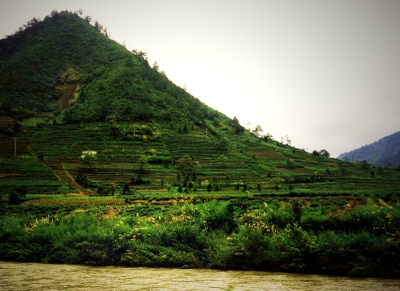
written by Matthew Ball
Soil is everything that matters to all of us. Whether you are a vegetarian or a diehard carnivore, if the soil that your food grows in and on is not healthful, then there is little left to sustain you for very long. Organic matter is soil’s ultimate buffer to stress and rehabilitator for stable structure, chemistry, and biology.

In 1910, these countries were already very densely populated by contemporary standards. Yet, for thousands of years the same land was cultivated and recultivated without becoming overburndened and exhausted. Do not get me wrong, this was not an ideal world; this was no utopia. By today’s democratic-capitalist standards, it was the people who were perhaps overburdened and exhausted. Despite impressive regenerative practices, the land, it’s people, and natural ecosystems were highly taxed and manipulated. But, this was before both World Wars, before the Cold War, and before China’s own politico- cultural revolution. Social and economic woes, both urban and rural, abounded, yet we were not yet misinformed and misguided by the haber-bosch process and the ensuing destruction and naive optimism of progress that it produced. The vast majority of the Asian population was not blinded and, dare I say, jaded by what we might call “modern” or “post-modern” attitudes. So, F.H. King was met by a rural population of earnest and hardworking, a meaning of hardworking that you and I may never be able to grasp, people who knew the importance of soil. They worked small landholdings, on average about one to two acres, to provide for the sustenance of their large families and to have a bit more to bring to market. Every last bit of nitrogen, in the form of organic matter, was collected, applied, and recycled. This thriftiness coupled with time-proven cultural practices made the land productive century in and century out. These people and their land, exemplary of many traditional modes of living throughout the world and time, embodied sustainability.
